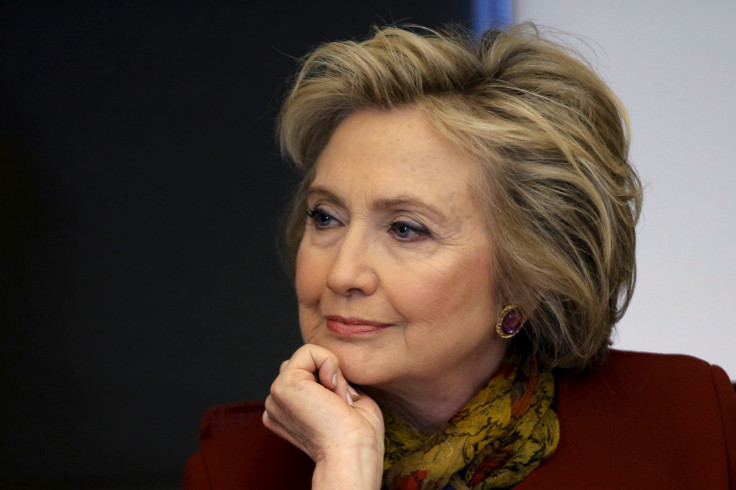Hillary Clinton’s Scalia Supreme Court Twitter Tirade Against Republicans, Explained

Democratic presidential candidate and former Secretary of State Hillary Clinton waded into the contentious debate sparked Saturday by the unexpected death of Supreme Court Justice Antonin Scalia. In an 11-part Twitter tirade, she noted late Monday that the court has important cases before it and that it wouldn’t be unprecedented to approve a nominee with just under a year left in the president’s second term.
Clinton started by tweeting a screenshot of Article II, Section 2, of the U.S. Constitution, which details the power of the president to nominate Supreme Court justices “with the advice and consent of the Senate.” She then penned 10 more tweets making the case for the Senate to consider whoever President Barack Obama nominates to replace Scalia.
Among the cases that the Supreme Court is expected to rule on this year that she wanted to highlight were a challenge to the president’s controversial immigration executive actions and one of the most important challenges to legal abortion in decades. She scolded Republicans for saying that they would not consider a nominee and noted that a justice was approved in 1988, which was also an election year.
1 Until Jan. 20, 2017, it's @POTUS' job to nominate Supreme Court justices—it's right there in the Constitution. -H pic.twitter.com/AWV47TRaTw
— Hillary Clinton (@HillaryClinton) February 16, 2016
3 Right now, millions of families are waiting for SCOTUS to decide on @POTUS' executive actions on immigration. -H
— Hillary Clinton (@HillaryClinton) February 16, 2016
Obama announced a controversial immigration executive order in November 2014, saying that his Justice Department would reprioritize deportations to focus on violent criminals instead of parents and young undocumented people. The Supreme Court announced in January it would consider a challenge to the order after a Texas district court announced that the rule was unconstitutional.
4 Right now, the fundamental principle of "one person, one vote” is at stake in a case before the Supreme Court. -H
— Hillary Clinton (@HillaryClinton) February 16, 2016
A case is before the court that will decide whether Virginia lawmakers considered race too strongly while redistricting congressional districts in the state. A lower court ruled that the districts were gerrymandered because black voters were packed into some districts in order to dilute their impact in others.
5 And right now, a case from Texas could determine whether the right to abortion will be a reality for all or some. -H
— Hillary Clinton (@HillaryClinton) February 16, 2016
The court is expected to hear an abortion case on whether states can require abortion facilities to meet the same building standards as outpatient surgical centers. The case comes from Texas, but many others have joined in and passed similar laws. Scalia was expected to join other conservatives on the bench in upholding those laws, which some see as restrictive.
6 These decisions could determine whether we as a nation uphold our principles of liberty and equality, or turn back the clock. -H
— Hillary Clinton (@HillaryClinton) February 16, 2016
7 With these critical cases in the balance, Republicans wasted no time in vowing to block any SCOTUS nomination from @POTUS. A new low. -H
— Hillary Clinton (@HillaryClinton) February 16, 2016
8 I have news for Republicans who would put politics over the Constitution: Refusing to do your duty isn’t righteous, it's disgraceful. -H
— Hillary Clinton (@HillaryClinton) February 16, 2016
9 There are 339 days until the next president takes office. The Senate has never taken more than 125 days to vote on a SCOTUS nominee. -H
— Hillary Clinton (@HillaryClinton) February 16, 2016
10 As for complaints that this is an election year: 1988 was an election year, too—and Justice Kennedy was confirmed 97-0. -H
— Hillary Clinton (@HillaryClinton) February 16, 2016
11 So, a message for Senate Republicans: Fill this vacancy. @POTUS will do his job. Do yours. -H
— Hillary Clinton (@HillaryClinton) February 16, 2016
© Copyright IBTimes 2024. All rights reserved.












